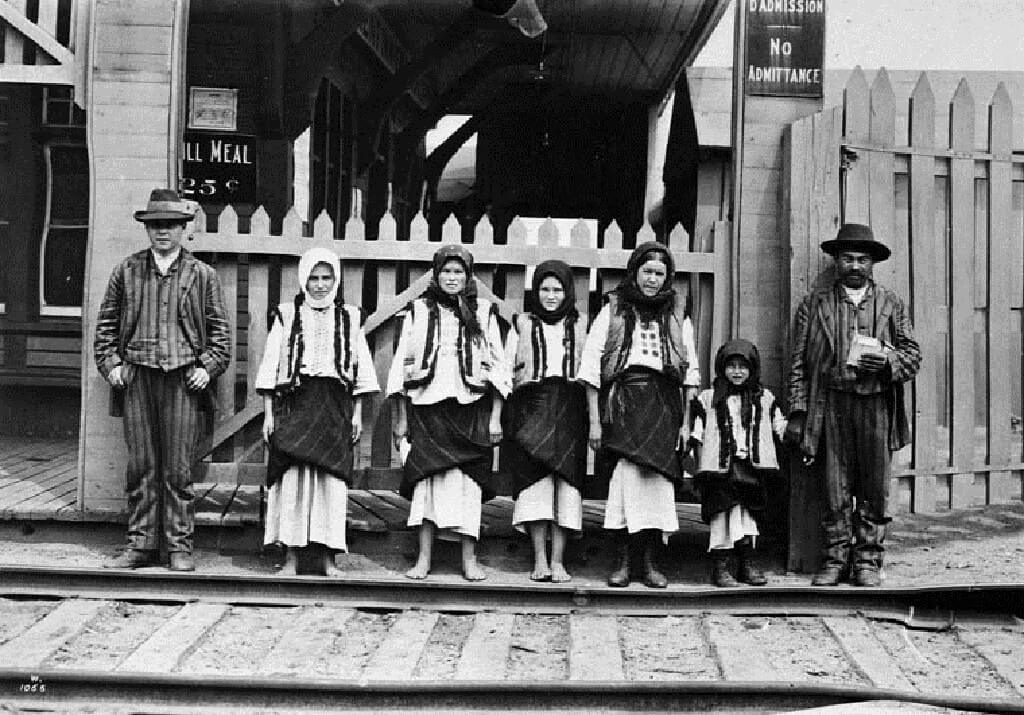Marco Levytsky, National Affars Editor.
September 7 is marked as Ukrainian Canadian Heritage Day in the two provinces with the largest population of Ukrainians in Canada – Ontario and Alberta. There is also a Ukrainian Canadian Heritage Day in Manitoba, but that is celebrated on the last Saturday of July in order to coincide with Canada’s National Ukrainian Festival, held at Selo Ukraina near Dauphin, Manitoba.
But in the case of both Ontario, which passed its act in 2011, and Alberta, which held its first such celebration last year, September 7 was chosen as the date because it marks the day the first Ukrainian immigrants to Canada, Ivan Pylypiw and Wasyl Eleniak arrived in Canada.
Although Pylypiw and Eleniak visited western Canada in 1891, it was not until the summer of 1892 that the first permanent settlers – a contingent of seven families from Nebyliv, Kalush county (povit) in Austrian Galicia (today Rozhniativ Raion, Ivano-Frankivsk Oblast), led by Mykola Tychkowski and Anton Paish, settled at Edna-Star located about 50 kilometres east of Edmonton in Lamont County. Pylypiw returned to Galicia for his family and finally caught up with the group in 1893. Eleniak first spent some time in Manitoba, but joined the other permanent settlers in Edna-Star in 1898. In 1947, in a special ceremony in Ottawa, Eleniak, representing Ukrainians in Canada collectively, was one of the first four Canadians to receive a citizenship certificate. (Until that time, Canadians did not have their own citizenship but had official status as “British Subjects”)
Massive immigration really began in 1896. Among the key factors that prompted this influx two stand out. One was the election in 1896 of the Liberal Government led by Sir Wilfred Laurier and the appointment of Sir Clifford Sifton as Minister of the Interior. Eager to settle the Prairies with agricultural workers, Sifton pursued an aggressive immigration policy. Among those groups targeted were peasants from East Central Europe. As he famously declared: “When I speak of quality I have in mind, I think, something that is quite different from what is in the mind of the average writer or speaker upon the question of Immigration. I think a stalwart peasant in a sheep-skin coat, born on the soil, whose forefathers have been farmers for ten generations, with a stout wife and a half-dozen children, is good quality.”
The other was the work of Dr. Joseph Oleskiw, one of the prominent members of the “Prosvita” (enlightenment) society, created in Galicia in 1868 in order to preserve and develop Ukrainian culture and education among the population. In 1895, he published two pamphlets, the first one entitled “About Free Lands”, the second “About Emigration” in which he urged emigration to Canada with its promise of 160 acres of land for the nominal sum of $10. According to historian Michael Marunchak, Oleskiw’s booklets “had given the Ukrainian village people, struggling to make a scant living under the Austrian regime, just what they needed – a true guidebook to resettlement in the free land, Canada.”
In total, about 170,000 Ukrainians, mostly from the two Austrian provinces of Galicia and Bukovyna settled permanently between 1891 and 1914 making this the largest of all the Ukrainian waves of immigration to Canada.
Life was not easy for the early settlers. In order to cultivate the land, they first had to clear it of rocks and trees using the most primitive tools and their bare hands. The first home, called a burdei, was actually a dugout covered with sod in which the whole family lived. The second house was often a white-washed and plastered log cabin usually with a thatched roof, very similar to those seen in Ukraine. Husbands often travelled far and wide to earn money working in the mines and on the railways of western Canada, while the women stayed home and took care of the farm.
World War I and the immediate aftermath proved to be a tumultuous time for the fledgling Ukrainian community in Canada. Wartime hysteria and ethnic prejudice led to the First National Internment Operation of 1914-1920. 8,579 men, and some women and children, were interned as “enemy aliens” by the Canadian government acting under the authority of the War Measures Act. Of these, 5,000 were Ukrainians from the Austro-Hungarian Empire.
But the Ukrainian settlers not only survived the early struggles, they prospered and contributed greatly to Canada’s development. As the Ukrainian Canadian Heritage Act of Ontario states:
“Ontarians of Ukrainian descent have left and continue to leave a historic mark on our province. Their contributions span communities across Ontario and are reflected in our economic, political, social and cultural life. Ukrainian Canadians have played an important role in the development of Ontario into one of the most desirable places in the world to live and have contributed to making Canada the great country that it is today.”
On the Prairies, where Ukrainians first settled they can be considered a regional “founding nation” and Ukrainian culture has become integrated with mainstream Canadian culture. As Fort Saskatchewan-Vegreville MLA Jessica Littlewood stated when introducing the Alberta bill in November 2016:
“Over time, Ukrainian culture has become an integral part of Alberta culture. There are renowned Ukrainian dance companies from Alberta that delight audiences worldwide. Albertans of Ukrainian heritage have made tremendous contributions in every aspect of Alberta society. From business and industry, to academia, public service, culture and sports, Ukrainian Albertans have made Alberta a better place for all.”
Thus, September 7 is a day not only to remember and honour the brave pioneers who established our community in Canada, but also to celebrate Canada itself as the country which first welcomed our ancestors and has become such a friend of Ukraine itself in its time of need.
Share on Social Media




































